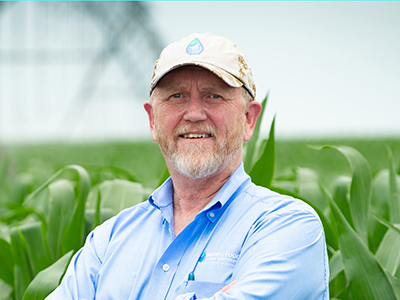“On November 15, 2019, Executive Director Peter G. McCornick provided testimony supporting water and food research to the Appropriations Committee of the Nebraska state legislature.”
Testimony
Peter G. McCornick, Executive Director
Daugherty Water for Food Global Institute
University of Nebraska-Lincoln
November 15, 2019
Chairman Stinner and members of the Appropriations Committee, my name is Peter McCornick and I am the executive director of the Daugherty Water for Food Global Institute at the University of Nebraska.
Thank you for the opportunity to share a bit about the work and impact of the Daugherty Institute. And thank you to Senator Bolz for bringing forward this interim study on a topic that has such significant implications for the success and well-being of our state.
You’ve heard Chancellor Green talk about the University of Nebraska’s rich 150-year history of research in water, agriculture and natural resources.
The Daugherty Institute, created in 2010, has existed for only a fraction of that time. But our work over the past 10 years in leveraging the expertise of all four University of Nebraska campuses to improve water management in agricultural and food systems is, I believe, a true success story for our state. And the greatest opportunities are still ahead.
The Daugherty Institute was established with a gift from the Robert B. Daugherty Foundation, named in honor of the founder of Valmont Industries, the world’s largest pivot irrigation company. Bob Daugherty’s choice to invest in the University of Nebraska was no accident. He selected Nebraska because of our well-established expertise in water and agricultural research, and the state’s renowned strengths in agriculture and natural resources management.
Bob understood a critical formula for excellence: Invest in your strengths, and you can become even stronger.
Bob believed, as we do, that there is no place better suited to lead the way in achieving water and food security for the growing global population than Nebraska.
The stakes for our work could not be higher, more complex or more urgent. Every night, almost one billion people around the world go to bed hungry. Many of these people are also water-insecure, lacking access to enough clean water.
By 2050, our global food production will need to double in order to feed almost 10 billion people. This is a matter of quality of life for our fellow human beings, as well as international security. Water scarcity creates conflict. If we are to achieve worldwide water and food security, we must develop new strategies for managing our precious water resources.
Closer to home, this year’s devastating floods across Nebraska are a powerful reminder of the importance of effective water management, especially in the face of an unpredictable climate.
The Daugherty Institute collaborates across the University of Nebraska system, as well as with farmers, ranchers, public and private partners to inform, advise and initiate change. We work with interdisciplinary faculty who are involved in cutting-edge science and policy research.
Recognizing the University’s vital role in workforce development, we are preparing the next generation of water and food leaders, having invested more than $3 million in graduate student support here in Nebraska.
I’d like to share with you a few examples of our work. In short, you can be proud that your University of Nebraska has become a world leader in addressing one of the most urgent challenges of our time. Nebraska does not simply have a seat at the table in this conversation… We are at the head of the table.
The issues the Daugherty Institute tackles on a daily basis include:
- Technology development to reduce risk and make farming operations more efficient and competitive. This includes enhancement of decision support tools to improve water management and food production, like soil moisture sensors in the field, data collection from drones, and other strategies that provide farmers with accurate, real-time information to guide their irrigation and agricultural decisions.
- Improvement of water and soil quality. Safe, clean water is important to all Nebraskans, from irrigation to the water pouring from faucets in households and businesses across the state. The Daugherty Institute is working to better assess water quality conditions, and reduce potential for contamination, including the adoption of best agricultural management practices.
- Research to achieve full yield potential while reducing water use. We recently released the Nebraska Water Productivity Report, for example, that reflects remarkable improvements in the state in yield per drop of water used for crops, livestock and biofuels over the past three decades.
- Groundwater management to ensure that the quality and quantity of our natural resources will sustain community, agricultural and natural ecosystems for future generations.
Our location at the Nebraska Innovation Campus allows us to work side-by-side with entrepreneurs in the water and agriculture space, helping them test new equipment and conduct market research for startups. We also provide hands-on training for students, interns and staff in building innovative, scalable agricultural companies. These young professionals can then move into high-paying industry positions or launch their own companies – building our network of connections and growing Nebraska’s workforce.
Nebraska is leading the way in agricultural productivity and responsible stewardship of water resources. Your partnership and support has been a critical factor in our success, and we are grateful for your ongoing engagement.
*Mr. Chairman, in addition to our most recent Water Productivity Report, I have also provided the committee a copy of testimony from Brandon Hunnicutt, an farmer from Giltner, who describes his experience with the Daugherty Water for Food Global Institute.”
I would be pleased to answer any questions.


